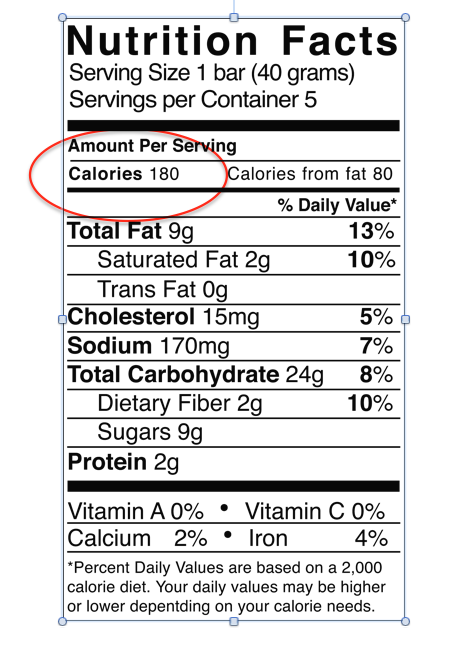
by plant4health | Jan 25, 2016 | Plant-based

Calories: a unit used to measure the amount of energy food provides when eaten and digested.
Counting calories is one of the most popular methods people use for weight loss. Seeking to shed unwanted pounds, dieters carefully select their food choices based on the total number of calories allocated for their gender, age, height, weight, and average daily level of activity. It’s a simple mathematical solution to lose weight; don’t eat more than your prescribed calorie allotment. But what seems like a logical solution is actually unhealthy and counter productive.
Here’s why:
1. Calories have nothing to do with nutrition.
(more…)
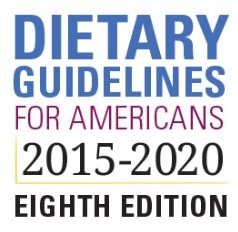
by plant4health | Jan 11, 2016 | Nutrition, Whole food, plant-based
They’re better, but still influenced by the food industry…
On January 7, 2016, the U.S. government released the Dietary Guidelines for Americans which is jointly developed every five years by the U.S. Departments of Health and Human Services (HHS) and of Agriculture (USDA). The guidelines serve as a resource to health care professionals, policymakers and the general public by providing nutrition advice for maintaining health and preventing chronic diseases. According to the report “about half of all American adults – 117 million people – have one or more preventable, chronic diseases, many of which are related to poor quality eating patterns and physical inactivity.” This level of chronic illness costs billions of dollars in medical bills and lost productivity annually.
The good news for those of us who thrive on a whole food, plant-based diet is that the guidelines recommend that Americans consume more fruits and vegetables, more fiber and whole grains. The five key guidelines from the report are: (more…)
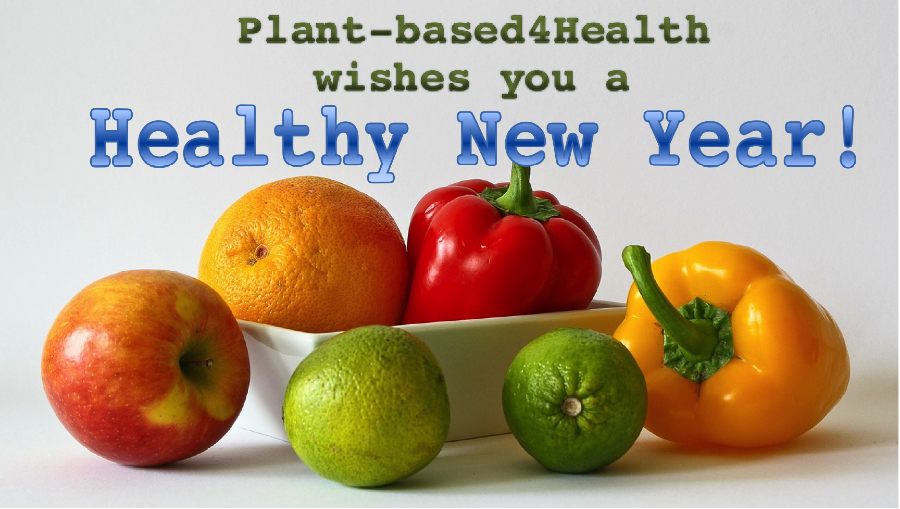
by plant4health | Dec 30, 2015 | Healing, Nutrition, Plant-based, Recipes, Vegan, WFPB, Whole food, Whole food, plant-based
 It’s a huge challenge to eat healthy during the holidays. Overindulgence of rich and sugary foods goes hand-in-hand with the season of giving, making it difficult to find a balance between holiday traditions and healthy eating. After the celebrating is over, we look to the new year in hopes of regaining our equilibrium. It’s the perfect time to renew the commitment towards making healthier choices.
It’s a huge challenge to eat healthy during the holidays. Overindulgence of rich and sugary foods goes hand-in-hand with the season of giving, making it difficult to find a balance between holiday traditions and healthy eating. After the celebrating is over, we look to the new year in hopes of regaining our equilibrium. It’s the perfect time to renew the commitment towards making healthier choices.
I invite you to join me in reclaiming healthy eating habits. I’m not talking about the dreaded “d” word – “dieting”. “Dieting” is filled with the negativity of depriving yourself of the foods your body has become addicted and emotionally attached to. (Learn more about your brain and food addiction.)
(more…)
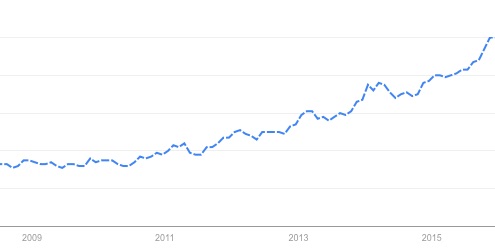
by plant4health | Dec 22, 2015 | Healing, Nutrition, Plant-based, Vegan, WFPB, Whole food, plant-based

Google search results for “Veganism – Diet”
As 2015 comes to a close, I’d like to thank all of our supporters and regular readers of plant-based4health.com. My sister-in-law, Kathy Parnay, and I launched the site in January 2015 as a way to share tips, resources, blog posts and recipes with people who are inspired to learn about and try a whole food, plant-based (vegan) diet to prevent or reverse chronic disease.
Kathy knows first hand about the healing power of a low glycemic, alkalizing plant-based diet. Her husband, Stefan, cured his prostate cancer on this diet, avoiding the surgery, chemo and radiation that his doctors strongly recommended. See their story: Our Journey with Prostate Cancer – A Wife’s Perspective. It is well documented that a whole food, plant-based diet can help people reverse Type 2 diabetes and heart disease, reduce cholesterol and blood pressure and lose weight. Sites like Physicians Committee for Responsible Medicine, PCRM.org, the T. Colin Campbell Center for Nutrition Studies, Dr. Michael Greger’s NutritionFacts.org, and Dr. John McDougall’s Health and Medical Center continually publish evidence-based articles and personal stories supporting the health benefits of whole food, plant-based nutrition.
Here are some of our popular posts and articles from this year: (more…)
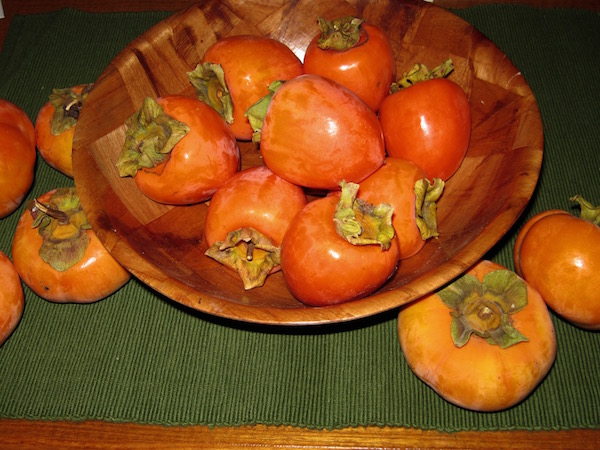
by plant4health | Dec 8, 2015 | Healing, Nutrition, Plant-based, Recipes, Vegan, WFPB
 Most people underestimate the nutritional value of Persimmons.
Most people underestimate the nutritional value of Persimmons.
Persimmons are a strange fruit. In late Fall in Northern California, you can find this plump fruit dangling from bare tree limbs, hanging on as if afraid to let go. Persimmons have a delicately mild sweet flavor and a firm apple-like consistency (Fuyu variety) or a soft and stringy texture (Hachiay variety). Until recently, I didn’t pay much attention to the potential value of their nutrients, being prejudice against their unusual textures and lack of distinct robust flavor. However, upon urging from my daughters and the generosity of my mother-in-law’s bountiful trees, we have incorporated this fruit into our Fall diet this year. Much to my surprise, Persimmons have become a wonderful complement to our plant-based meals.
This seasonal fruit holds a amazing amount of healing nutrients. Persimmons are: (more…)
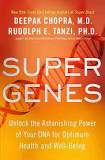
by plant4health | Nov 22, 2015 | Epigenetics, Healing, Nutrition, Organic, Whole food, plant-based
Dr. Deepak Chopra, M.D., author of 80 books and co-founder of the Chopra Center for Well-Being and founder of the Chopra Foundation, recently spoke in Los Altos Hills, CA about his new book, Super Genes, which he co-wrote with Rudolph Tanzi, PH.D. Here is a brief summary of his presentation embellished with information from the book, noted in quotes.
Super genes are your body’s self-regulating building blocks, which are constantly sending instructions to your body. The super genome consists of three components: genome, epigenome and microbiome.
- Genome: you have 23,000 genes in your body and 100 trillion cells – more cells than all the stars in the Milky Way galaxy! A gene is a unit of heredity and carries memories of a cosmic nature spanning 14 billion years.
- Epigenome: a sheath of proteins that encloses DNA. It is a switching mechanism that enables your cells to respond to your experiences. Epigenetics is the study of gene expression influenced by external factors and your environment. Examples include environmental toxins, stress, diet, relationships and even your thoughts and emotions. Every experience you have makes your genes express themselves. Negative emotions like fear, guilt, and shame cause the self-regulation to get disrupted and that can result in illness.
- Microbiome: colonies of bacteria that line your gut and can be found on your skin. There are trillions of them in your body, over 2,000 species. Bacteria is essential to humans and makes digestion possible.
(more…)







